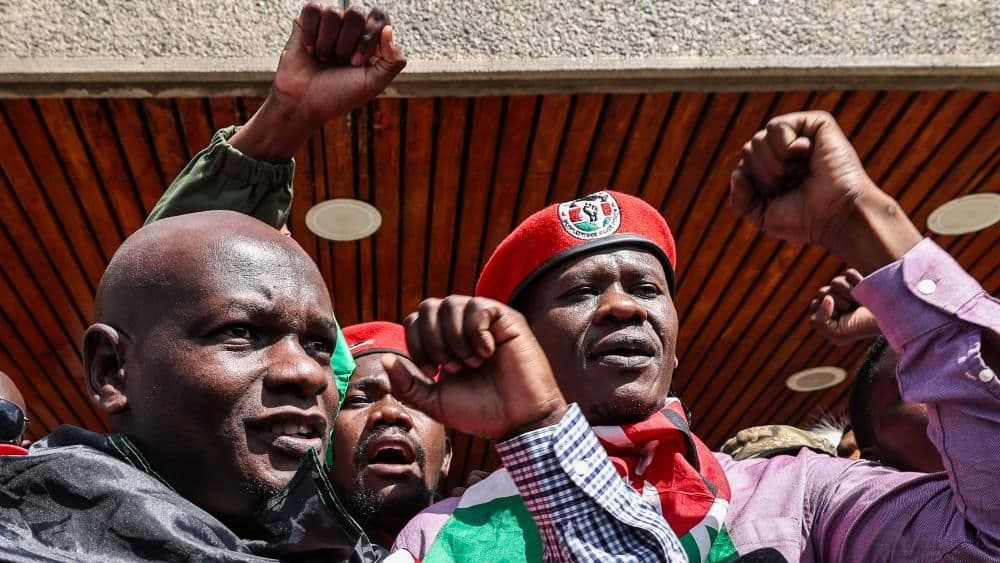We're loading the full news article for you. This includes the article content, images, author information, and related articles.
President Museveni's confirmation of the 38-day detention of two Kenyans, Bob Njagi and Nicholas Oyoo, accusing them of being 'riot experts', raises urgent questions about the safety of Kenyans and civic freedoms across the East African Community.

Ugandan President Yoweri Museveni has confirmed his government's security forces arrested and detained two Kenyan activists, Bob Njagi and Nicholas Oyoo, who were missing for 38 days. In a statement during a radio talk show on Saturday, November 8, 2025, President Museveni described the activists as “experts in riots” and stated they had been put “in the fridge for some days.” This admission ended weeks of speculation and official denials from Kampala following the activists' disappearance on October 1, 2025.
Njagi and Oyoo were reportedly taken by armed men in Kira Municipality, Wakiso District, shortly after attending a political rally for Ugandan opposition leader and 2026 presidential candidate, Robert Kyagulanyi, popularly known as Bobi Wine. The Ugandan government had previously denied any knowledge of their whereabouts, even as a Kampala High Court judge dismissed a habeas corpus application on October 22, citing a lack of evidence linking their disappearance to the state.
Upon their return to Nairobi on Saturday, November 8, 2025, the activists recounted a harrowing ordeal. Speaking at Jomo Kenyatta International Airport (JKIA), a visibly frail Bob Njagi stated they were held incommunicado at the Kasenyi Military Barracks in Entebbe by Ugandan special forces. “Thirty-eight days of abduction was not easy. We didn't think we would have come out alive,” Njagi said, alleging they were subjected to torture and starvation, with Njagi claiming he went without food for 14 days.
Their release followed what Kenya's Prime Cabinet Secretary and Cabinet Secretary for Foreign and Diaspora Affairs, Musalia Mudavadi, described as “sustained diplomatic engagement between Kenya and Uganda.” Kenya's Foreign Affairs Principal Secretary, Dr. Korir Sing'oei, confirmed on Saturday that the two were handed over to Kenya's High Commissioner in Uganda, Joash Maangi, late Friday night before being escorted to the Busia border. They were officially received by the Busia County Commissioner, Chaunga Mwachaunga.
President Museveni's justification for the arrests has sent a chill through the region's activist community. He accused the Kenyans of collaborating with Bobi Wine's National Unity Platform (NUP) to incite violence. “Here we have very good intelligence… We monitored them and found out they were experts in riots,” Museveni stated on Saturday. He warned that any others attempting to mislead young people in Uganda would face a similar fate.
The incident has been widely condemned by human rights organizations. A joint statement by VOCAL Africa, the Law Society of Kenya (LSK), and Amnesty International Kenya condemned the alleged torture and called for a transparent investigation. “Enforced disappearances and torture have no place in our region,” the groups stated, warning that the persecution of activists threatens regional cooperation and civic freedoms in East Africa. Bobi Wine described the detention as evidence of Uganda operating as a “complete military dictatorship” and alleged that Museveni's son, General Muhoozi Kainerugaba, personally ordered the detention.
The affair highlights the precarious political and security landscape within the East African Community, testing diplomatic ties between Nairobi and Kampala. It underscores the potential risks faced by citizens, particularly those involved in political activism, when crossing borders within the bloc. As Njagi and Oyoo begin their recovery, the focus shifts to whether there will be accountability for their detention and alleged torture, and what measures will be taken to safeguard the rights of East African citizens across member states.
Keep the conversation in one place—threads here stay linked to the story and in the forums.
Sign in to start a discussion
Start a conversation about this story and keep it linked here.
Other hot threads
E-sports and Gaming Community in Kenya
Active 9 months ago
The Role of Technology in Modern Agriculture (AgriTech)
Active 9 months ago
Popular Recreational Activities Across Counties
Active 9 months ago
Investing in Youth Sports Development Programs
Active 9 months ago
Key figures and persons of interest featured in this article